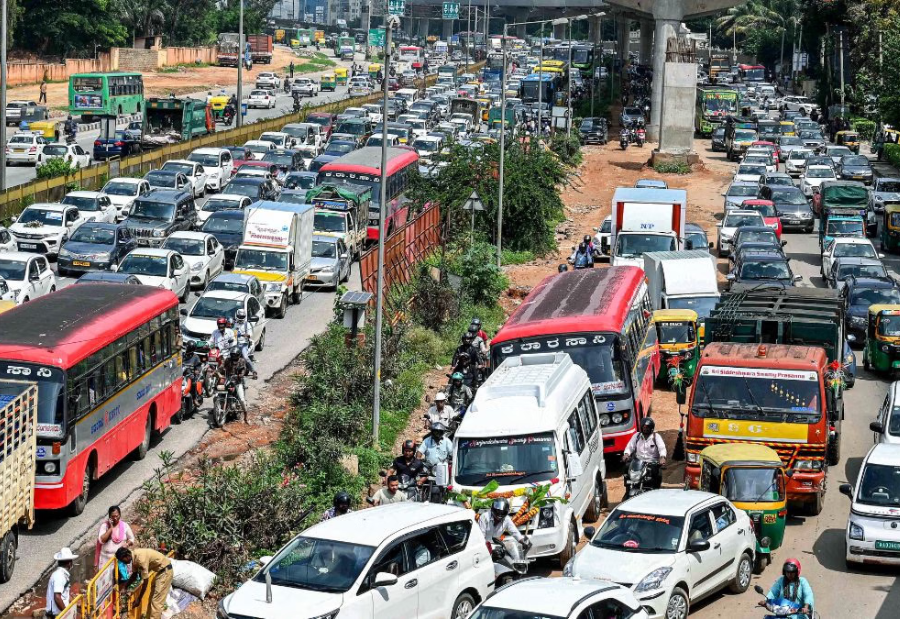Bengaluru, India’s leading technology hub, is facing severe strain as traffic congestion and weak infrastructure disrupt daily life and affect productivity. The morning rush hour often stretches for several hours, slowing down work routines in a city known globally for its thriving technology ecosystem.
Entrepreneur RK Misra, co founder of a successful start up, shared how his sixteen kilometre commute can take up to two hours during peak times. He avoids scheduling in person meetings before noon and says the situation makes it difficult to plan his day. He added that the long travel times also affect work life balance.
The city, home to around twelve million people, hosts thousands of start ups, outsourcing firms and global technology companies, including Google and Microsoft. Yet its Outer Ring Road business corridor, which houses tech parks and offices of several major global firms, remains heavily congested. The area also faces frequent potholes, flooding during the monsoon and water shortages in summer.
Tension grew in September when Rajesh Yabaji, CEO of the digital logistics platform BlackBuck, announced that he was moving his company away from the Outer Ring Road. He said the decision followed rising commute times and poor road conditions that had not been fixed.
Business leaders have echoed similar concerns. Pharma entrepreneur Kiran Mazumdar Shaw wrote that overseas visitors questioned the poor road conditions and garbage in the city, asking whether the government was committed to supporting investment.
According to the TomTom Traffic Index, Bengaluru recorded the third slowest traffic in the world in 2024. Manas Das of the Outer Ring Road Companies Association said basic infrastructure issues are now affecting companies. BS Prahallad, technical director at Bengaluru Smart Infrastructure Limited, said that an average resident takes up to one hundred minutes to travel sixteen kilometres. He added that urgent action is needed to prevent further decline.
Karnataka deputy chief minister DK Shivakumar recently said that ten thousand potholes had been identified and that half had been repaired. Authorities plan to restructure the city’s governance by dividing the municipal corporation into five smaller bodies and creating a Greater Bengaluru Authority.
Experts say rapid urban growth has placed extreme pressure on the city. Ecologist Harini Nagendra noted that blocked waterways, loss of wetlands and tree cover and rising pollution have all contributed to flooding, drought and worsening air quality. Nearly half the city depends on boreholes that often dry up in summer, while the rest rely on water tankers.
Despite the challenges, venture capitalist TV Mohandas Pai said he remains hopeful that the city will overcome the strain of rapid expansion. He added that Bengaluru is experiencing the difficulties of growth because the country has more experience dealing with poverty than with prosperity.
Also read: Viksit Workforce for a Viksit Bharat
Do Follow: The Mainstream formerly known as CIO News LinkedIn Account | The Mainstream formerly known as CIO News Facebook | The Mainstream formerly known as CIO News Youtube | The Mainstream formerly known as CIO News Twitter
About us:
The Mainstream is a premier platform delivering the latest updates and informed perspectives across the technology business and cyber landscape. Built on research-driven, thought leadership and original intellectual property, The Mainstream also curates summits & conferences that convene decision makers to explore how technology reshapes industries and leadership. With a growing presence in India and globally across the Middle East, Africa, ASEAN, the USA, the UK and Australia, The Mainstream carries a vision to bring the latest happenings and insights to 8.2 billion people and to place technology at the centre of conversation for leaders navigating the future.




